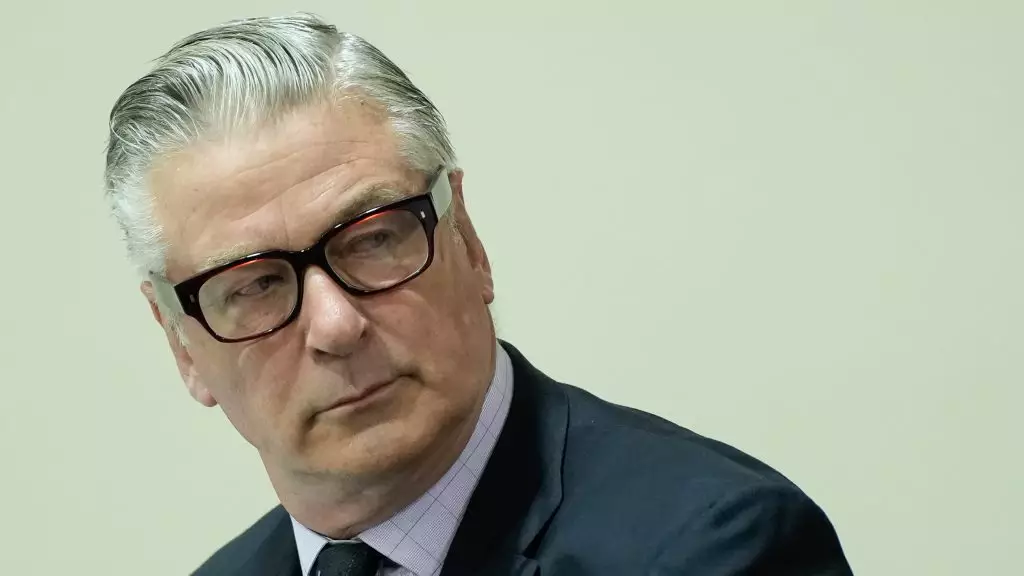The incident on the set of “Rust” in 2021 remains one of Hollywood’s most harrowing tragedies. The accidental death of cinematographer Halyna Hutchins has left an indelible mark not only on those who knew her but also on the global film industry and its stakeholders. Alec Baldwin, a seasoned actor and Oscar nominee, finds himself at the center of this storm. Although the involuntary manslaughter charges against him were dismissed in July, Baldwin is adamant about sharing his truth surrounding the incident. As he prepares for what he deems to be “another phase” in this protracted saga, the pressure to clarify his narrative mounts.
In a recent interview on David Duchovny’s podcast “Fail Better,” Baldwin articulated his desire to expose what transpired on the “Rust” set. His insistence that there is “more to come” suggests he harbors crucial information that he believes has been suppressed by the media over the past three years. Baldwin expressed frustration regarding the press’s portrayal of his situation, alleging that they amplified stories detrimental to him while ignoring those that could exonerate him. This accusation raises questions about media ethics and its role in public perception, particularly in high-profile cases like Baldwin’s.
Reflecting on the significance of this narrative, Baldwin stated, “I was counterpunching. I was on the defensive.” This underscores the emotional toll that the scrutiny has imposed on him, a situation exacerbated by public sentiment that often leans towards vilification rather than understanding. The actor’s assertion that an entire narrative surrounding the incident remains untold calls attention to the complexities of truth in the media age, where sensationalism often overshadows factual reporting.
Baldwin’s ongoing legal saga reflects deeply ingrained societal attitudes towards accountability. In his remarks, he highlights the public’s thirst for punitive measures against those they perceive as culpable. The actor posited that there exist three fundamental desires in societal judgment: a wish for someone to “die,” to “go to prison,” or to be “canceled” altogether. The starkness of these claims invites a broader discourse regarding the nuances of justice and the fallout from public opinion.
The judge’s July 12 ruling in Baldwin’s favor dismissed the case partly due to the prosecution’s failure to disclose critical evidence. Baldwin’s legal team was prepared to present significant material that they believed would vindicate him; however, the absence of a full trial means that many questions remain unanswered. The notion that Baldwin wishes for a solid verdict is indicative of his need for closure, not just legally but emotionally, as he continues to grapple with the implications of Hutchins’ death.
Alec Baldwin has indicated that there is a forthcoming strategy to clear his name and provide context for the tragedy. He suggests that in the months following the holidays, he will undertake steps to bring “the truth to light.” This proactive stance reveals a determination to reclaim his narrative, which may also resonate with audiences who have followed the story closely.
However, Baldwin has also acknowledged the necessity of stepping back from the spotlight. He expressed a desire to take a break and concentrate on his well-being amidst the chaos. This acknowledgment brings forward the reality that enduring public scrutiny takes a significant toll on one’s mental health, particularly for someone who has experienced a traumatic event.
The aftermath of the “Rust” shooting serves as an ongoing reminder of the complexities surrounding blame, accountability, and the human cost of tragedy. Alec Baldwin’s position in this narrative is intricately tied to broader themes of media influence, societal judgment, and the search for truth. As Baldwin prepares to embark on a new phase of his journey towards transparency, the world watches closely, eager for clarity and closure on an event that has profoundly affected many lives. The final chapter of this story has yet to be written, and Baldwin’s next steps may well define not only his future but also the collective understanding of the tragedy that unfolded on that fateful film set.


Leave a Reply